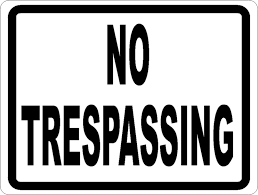
When a landlord rents an apartment, the landlord remains the owner of the property but grants possession of the premises to the tenant(s). In other words, even though a landlord is still the owner of the property, they no longer have unlimited access to the premises. Massachusetts law only allows a landlord to enter a rented apartment for a number of limited reasons, such as to inspect the premises, make repairs, or show the apartment to a potential new renter.
A landlord is required, however, to give the tenant(s) reasonable notice before entry. While there is no set rule on what "reasonable notice" is, I recommend that landlords provide at least one day's notice prior to entry. Most importantly, landlords should provide this notice in writing, even if the landlord speaks with the tenant in person. A quick email is one easy way to do this.
If a landlord refuses to provide a tenant with notice prior to entry, a tenant can seek damages against the landlord, including an injunction or restraining order preventing the landlord from entering the apartment. Such steps, however, are often unnecessary; sometimes a cordial conversation between the landlord and tenant is all that is needed to resolve these problems.
BLOG URL: http://malandlordtenantlawblog.sherwinlawfirm.com/2014/10/lawful-entry-of-rented-premises.html